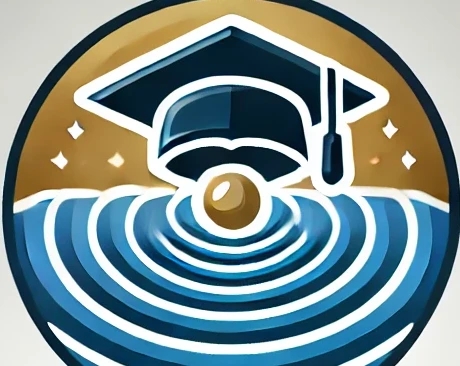We’ve all been there. You sit down with the full intention of studying—books open, highlighters ready, maybe even a fresh cup of tea beside you. But somehow, ten minutes later, you’re scrolling through your phone, reorganizing your desk, watching “just one more” video, or convincing yourself that you’ll start in five minutes. Before you know it, hours have passed, and your study plan has been completely derailed.
This is procrastination—and for many students, it’s one of the biggest obstacles to academic success. It’s not always about laziness or lack of discipline. Sometimes, it’s fear of failure, being overwhelmed by where to begin, perfectionism, or simply the discomfort that comes with doing something mentally demanding. The problem is, the more we delay, the more pressure we feel, which only makes it harder to start. It becomes a cycle: avoid the work → feel guilty → stress out → avoid it more.
But the good news? Procrastination is a habit, not a personality trait—and habits can be changed.
Avoiding procrastination isn’t about becoming perfect or working nonstop. It’s about developing practical, manageable strategies that help you stay on track, stay focused, and build momentum—especially when motivation is low. Whether you’re studying for exams, working on a project, or just trying to catch up on class notes, there are clear, simple techniques that can help you stop putting things off and start making real progress.
In this guide, we’ll explore realistic and effective ways to beat procrastination while studying—without feeling overwhelmed or burnt out. These tips will help you build better routines, manage your time wisely, and, most importantly, take that first step toward studying with more confidence and less stress.
10 Strategies to Avoid Procrastination While Studying
1. Break Tasks Into Smaller, Manageable Steps
One of the biggest reasons we procrastinate is because tasks feel too big or overwhelming. Instead of telling yourself, “I need to study 5 chapters,” say, “I’ll review just one section first.”
Breaking your work into bite-sized tasks makes it feel less scary—and starting becomes easier.
Tip: Use a checklist and cross off each small step. That sense of progress is powerful.
2. Use the Pomodoro Technique
Study for 25 minutes, then take a 5-minute break. After four sessions, take a longer 15–30-minute break.
This method keeps your brain fresh and helps you stay focused in short, realistic bursts.
Why it works: It reduces the pressure to “study for hours” and helps fight boredom and burnout.
3. Set Clear and Specific Goals
Instead of vague goals like “study Biology,” try “summarize notes on cell division” or “complete 10 practice questions.”
Clear goals are easier to start and finish.
Bonus: Add a time limit to your goal to stay on track.
4. Remove Distractions (Before You Start)
Put your phone in another room, silence notifications, and close unrelated tabs on your laptop.
Use website blockers like Forest, Cold Turkey, or StayFocusd if you get tempted online.
Even better: Let a friend or family member know you’re in “focus mode” so they don’t interrupt.
5. Create a Dedicated Study Space
Have a clean, quiet spot that’s meant for studying—separate from where you relax or sleep.
When your brain associates a space with focus, it’s easier to get into “study mode.”
Add-ons: Use soft lighting, comfortable seating, and keep only your study materials nearby.
6. Use a Study Schedule (and Stick to It)
Plan your study time in advance—even if it’s just a rough daily plan. Set a regular study routine so it becomes a habit, not a decision you have to debate each day.
Pro tip: Be realistic. Don’t cram 8 hours into one day. Spread tasks out over the week.
7. Start With the Easiest Task First (The “Momentum” Trick)
If you’re feeling stuck, start with something small and easy. Once you’ve completed it, you’ll feel more confident and be more likely to continue.
Example: Organize your notes, highlight key terms, or answer one easy question.
8. Reward Yourself
Give yourself something to look forward to after a productive session—like a snack, a walk, a short YouTube video, or a phone call with a friend.
Why it works: Rewards give your brain a reason to stay committed and build positive study habits.
9. Study With a Friend (Accountability Partner)
Studying with someone else—either in person or virtually—can keep you on track. Just make sure you both agree on specific tasks and check in regularly.
Even texting a friend: “I’m studying now, I’ll update you in 30 minutes” can boost accountability.
10. Be Kind to Yourself (Don’t Chase Perfection)
Sometimes we procrastinate because we fear we won’t do the task perfectly. Instead, aim for progress, not perfection. Just getting started is a win.
Remember: It’s okay to have off days. What matters is trying again tomorrow.
FAQs: Ways to Avoid Procrastination While Studying
Why do I keep procrastinating even when I want to study?
Procrastination often isn’t about laziness—it’s usually rooted in feeling overwhelmed, anxious, distracted, or unsure where to begin. Sometimes, your brain avoids studying because the task feels too big, boring, or uncomfortable. Recognizing these feelings and breaking your work into smaller, doable steps is the first way to overcome it.
Is procrastination a bad habit or something more serious?
In most cases, procrastination is a habit that develops over time, often reinforced by stress or poor planning. However, if procrastination is constant and affects your daily functioning, it could be linked to deeper issues like anxiety, ADHD, or perfectionism. If you’re struggling regularly, it may help to speak with a counselor or academic advisor.
What is the Pomodoro Technique, and does it really help?
Yes, it helps many students! The Pomodoro Technique is a time-management method where you study for 25 minutes, then take a 5-minute break. After four sessions, you take a longer break. It works because it breaks studying into short, focused chunks, which reduces burnout and helps you stay motivated.
How can I avoid distractions from my phone or social media?
The best approach is to physically remove the distraction—put your phone in another room or turn it off during study time. You can also use productivity apps like Forest, Focus To-Do, or Cold Turkey to block access to distracting websites. Creating a quiet, dedicated study space also helps you stay focused.
Is multitasking while studying a good idea?
No—multitasking actually reduces your efficiency and increases mental fatigue. Your brain focuses best when you work on one task at a time. Switching between tasks (like texting and studying) makes it harder to retain information and finish work quickly.
Should I force myself to study even if I’m not in the mood?
Not necessarily. Forcing yourself can make you more resistant over time. Instead, try starting with a small, low-pressure task to build momentum. Often, just beginning—without worrying about doing it perfectly—can help shift your mindset and make studying feel more manageable.
How do I stay consistent with my study routine?
Consistency comes from creating a realistic study schedule and sticking to it—even on days when motivation is low. Keep your goals small and track your progress. Building a habit takes time, so start with just 20–30 minutes a day and gradually increase as your discipline grows.
Can studying with a friend help me stop procrastinating?
Yes, studying with an accountability partner can boost motivation and keep you on track. When you agree to check in with someone or work alongside them, you’re less likely to waste time or quit early. Just make sure your study buddy is as committed as you are.
What should I do if I keep falling back into procrastination?
It’s okay—everyone struggles sometimes. The key is not to beat yourself up. Reflect on what triggered the delay, adjust your approach (like changing your environment or routine), and try again. Progress isn’t about being perfect—it’s about learning and improving over time.
Check this video for additional information.







